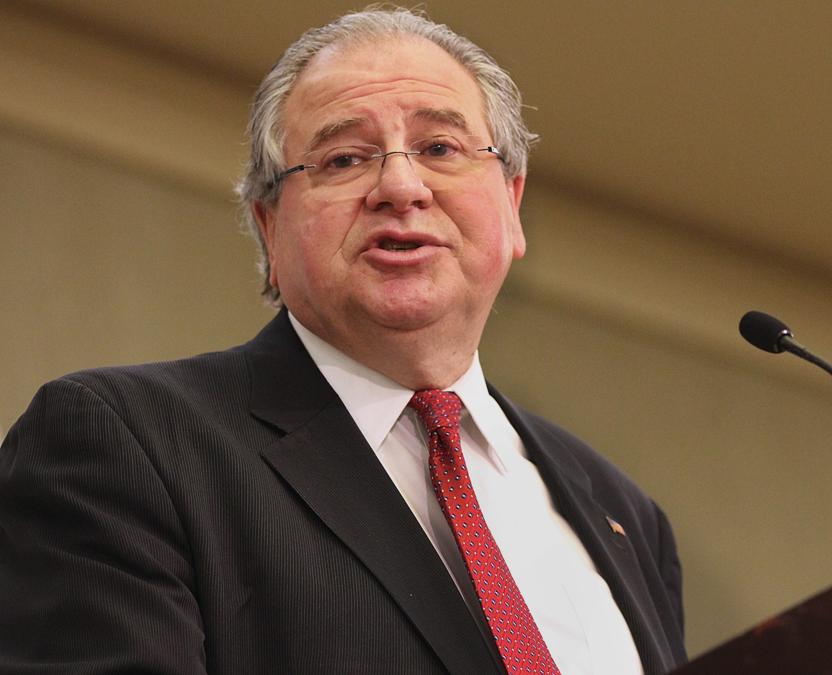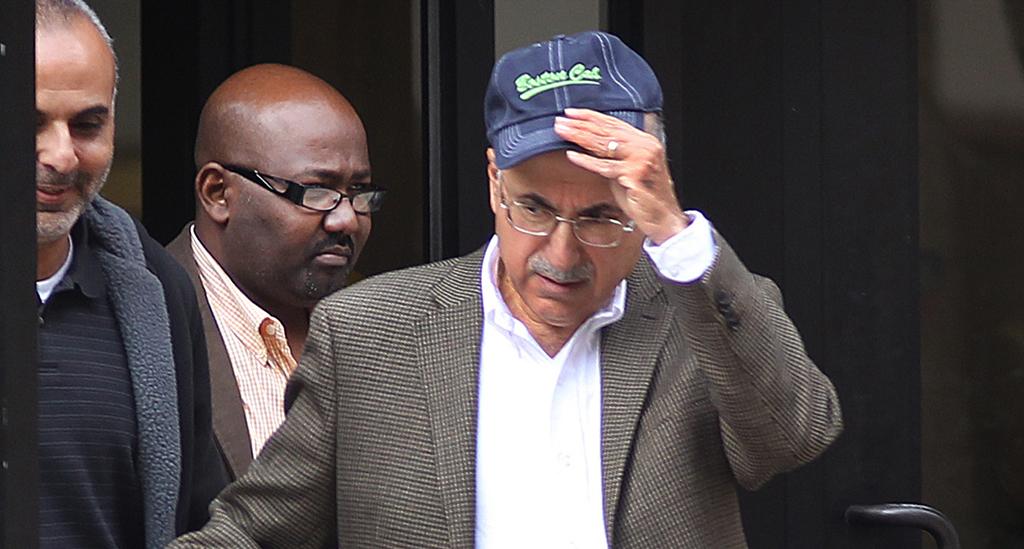LAW FIRMS
Ropes & Gray to spin off patent business
Boston’s biggest law firm is about to get a little smaller. Ropes & Gray’s management has decided to spin off a group of attorneys and other employees who handle patent filings for clients, a practice known as “patent prosecution,’’ into a new law firm. The new business will be based in New York and run by Ropes & Gray partner Joe Guiliano, although much about the spinoff remains unclear. The new firm doesn’t have a name yet. More than 100 of Ropes & Gray’s nearly 2,800 employees will leave to work at the new firm, although Ropes & Gray chairman Brad Malt doesn’t expect more than three to five partners to join the spinoff. Malt said decisions are still being made about who will leave and who will stay after the spinoff takes effect in a few months. The new firm is expected to have a California office, and it might have one in Boston, too. Malt said he expects the two firms will still share many clients. The driving force behind the change: the way law firms charge for patent filings. Malt said clients usually seek fixed prices, as opposed to hourly charges, for this type of work. Even with the spinoff, Ropes & Gray will still be the largest law firm in Boston, ahead of Goodwin, based on its number of lawyers. As of Jan. 1, Ropes & Gray employed 1,188 people in Boston, including 536 lawyers, according to a spokeswoman. — JON CHESTO
WORKPLACE
DeLeo to back workplace accommodations for pregnant workers
House Speaker Robert DeLeo (right) plans to advance a bill that would require companies to provide reasonable accommodations to pregnant employees and protect them from discrimination. The speaker’s endorsement provides important momentum for the legislation, which died in committee during the Legislature’s last two-year session. The House leadership had blocked a previous version of the bill in 2016 after one of the state’s biggest business groups raised concerns that it could lead to unfair hardships for companies, particularly small ones. The compromise version would provide for, among other things, accommodations for seating, more frequent or longer paid or unpaid breaks and time off, or a temporary transfer to a less strenuous job. Businesses would not have to provide the accommodations if doing so would create an “undue business hardship,’’ defined as a “significant difficulty or expense,’’ according to the compromise. This language was important for obtaining support from Associated Industries of Massachusetts. A spokesman for Senate President Stanley Rosenberg said he supports accommodations for pregnant workers but will wait for the latest bill to go through the committee process before reviewing it in detail and making a final decision. Rosenberg supported the concept last year when it came before the Senate. Governor Charlie Baker’s administration also sounded supportive but stopped short of saying the governor would definitely sign the bill. — JON CHESTO
HEALTH CARE
Major debt rating firms warn Partners of possible downgrade if losses continue
Wall Street’s three major debt rating firms are warning Partners HealthCare to stem financial losses or risk a downgrade of its credit rating. Analysts at Fitch Ratings, S&P Global Ratings, and Moody’s Investors Service revised their credit outlook for Partners from stable to negative, which is more bearish than their view on the nonprofit hospital industry as a whole. Fitch also downgraded Partners’ credit rating by one notch, a troubling sign for the state’s largest health network and largest private employer, which has historically posted steady profits. The reports, issued over the past several weeks, come after Boston-based Partners announced the worst earnings in its history. The company, whose hospitals include Massachusetts General and Brigham and Women’s, lost $108 million on operations in the fiscal year that ended Sept. 30, 2016. Almost all of the losses stemmed from its struggling insurance business, Neighborhood Health Plan, which primarily serves low-income patients on Medicaid. One Partners community hospital, North Shore Medical Center in Salem, also continued to lose money. Debt ratings are used by investors to gauge the risk of loaning money to a company. A negative outlook means that the company’s rating is likely to be cut unless it addresses the problems flagged by analysts. Partners is taking steps to shore up finances at Neighborhood Health Plan, including freezing enrollment for people on Medicaid, the government program for people with low incomes. It is also planning to cut up to 200 jobs at North Shore Medical Center to address the losses there. — PRIYANKA DAYAL MCCLUSKEY
SHORT-TERM RENTALS
Cambridge to consider ordinance regulating short-term rentals
Concerned that short-term rentals on sites such as Airbnb are affecting the city’s already tight market, Cambridge officials are considering limiting them to owner-occupied residences. “Cambridge is in the midst of an unprecedented housing crisis,’’ said City Councilor Craig A. Kelley, who drafted the proposal. “Speculating on the short-term market does affect us. Figuring out how to allow short-term rentals to thrive, but at the same time not overwhelm our housing stock, has been a challenge.’’ Under the proposed ordinance, only rooms in owner-occupied homes — and just one unit in owner-occupied, multifamily buildings of up to four units — may be rented on a short-term basis, defined as less than 30 days at a time. All short-term rentals would have to be registered with the city’s Inspectional Services Department, while units rented in owner-occupied, multifamily homes would also have to be inspected to ensure they meet safety standards. The number of short-term rentals in the city, at least those listed on Airbnb, has increased, Kelley said. He said the ordinance is aimed at listings on multiple platforms, such as FlipKey and HomeAway, and not just Airbnb, which is the most popular platform used in major metropolitan areas. In January 2015, there were about 900 listings on Airbnb in Cambridge, according to Denver-based Airbnb analytics tracking company Airdna, including entire units and homes, as well as private and shared rooms. By this January, the latest data available, that number had increased to just under 1,400 listings. Over the last year, through Feb. 28, about 47 percent of the Cambridge listings on Airbnb were available for at least half of the year, according to Airdna. — KATHELEEN CONTI
TRANSPORTATION
‘Taxi king’ to sell his company and medallions
The decades-long reign of Boston’s “taxi king’’ is coming to an end. Edward J. Tutunjian — whose Boston Cab empire crumbled amid competition from Uber and allegations of worker exploitation that triggered a federal investigation — has agreed to sell his company, 362 taxi medallions, and several properties in the Fenway to developer Jay Doherty for approximately $145 million. The deal settles a brief legal skirmish between Tutunjian and Doherty, whose development company, Cabot, Cabot & Forbes, sued the Boston Cab owner in December for allegedly walking away from a contract the sides signed earlier in 2016. But after a state judge temporarily blocked the sale of the Fenway properties to another party while the dispute was litigated, Tutunjian agreed to sell everything to Doherty after all. Doherty said his primary interest is in Tutunjian’s property, 2.1 acres across four parcels in the red-hot Fenway area. He plans to build a large residential development on the property, while finding a transportation company to operate the taxi business. In 2016, a federal judge fined Tutunjian $2 million and sentenced him to 18 months in a halfway house after he pleaded guilty to payroll tax evasion, failing to pay overtime to employees, hiring illegal immigrants, and helping workers win federal housing subsidies for which they didn’t qualify. Those charges stemmed from a 2013 Boston Globe Spotlight Team investigation, which reported that Tutunjian’s managers exploited Boston Cab’s largely immigrant workforce by demanding petty bribes in exchange for shifts and garnishing drivers’ pay to make up for supposed fare shortfalls. IRS agents raided Boston Cab’s Fenway headquarters two months after the series was published and hauled away boxes of financial records. — DAN ADAMS







